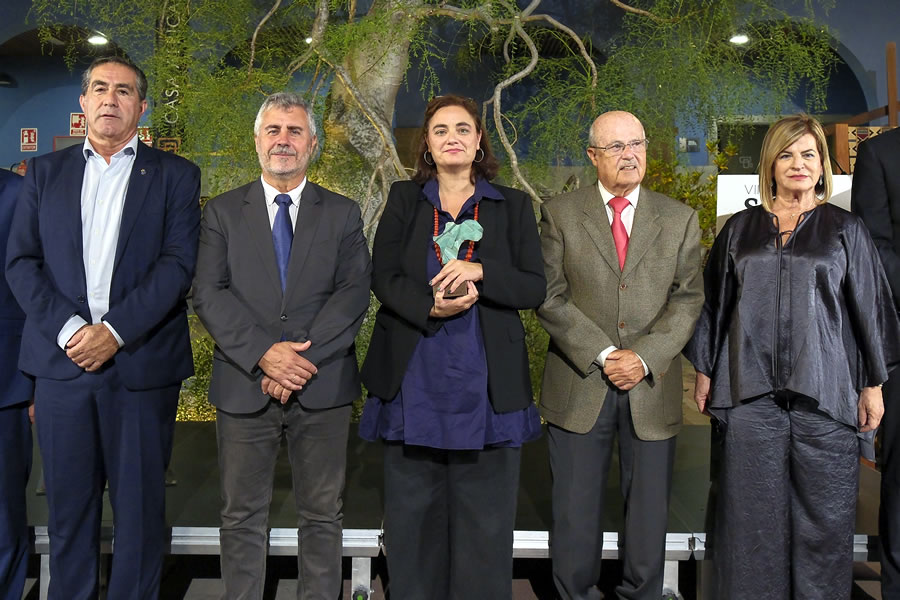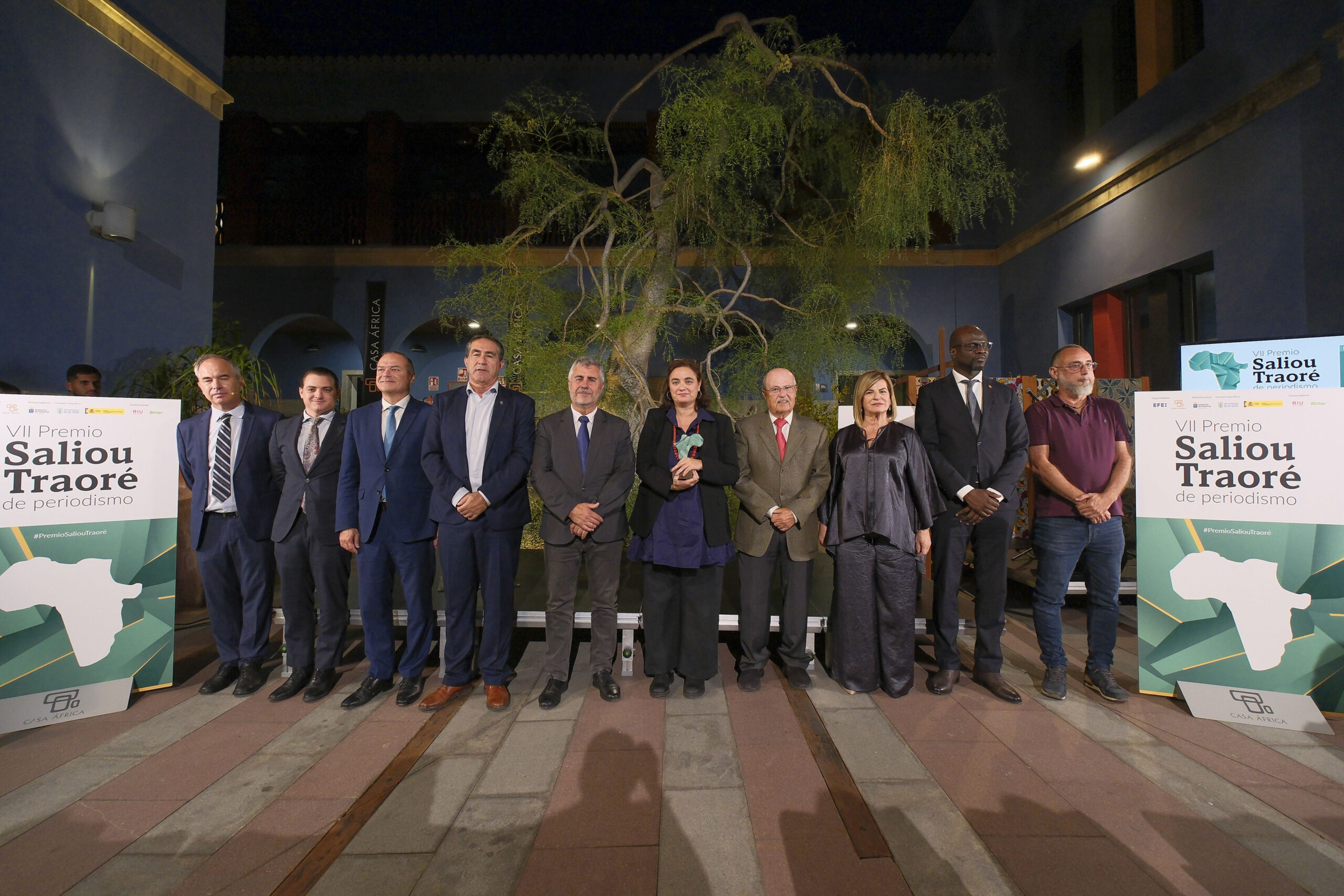 The 7th Saliou Traoré Prize for journalism went to a report that speaks of the restitution of plundered art and points to what looks like a new era for the continent through its young people's demand for justice.
The 7th Saliou Traoré Prize for journalism went to a report that speaks of the restitution of plundered art and points to what looks like a new era for the continent through its young people's demand for justice.
On the morning of Friday 17 October, on the island of Madagascar (located in the Indian Ocean off Mozambique, an island larger than our country), an army colonel took power after a coup d'état that took place very differently from, for example, those we have seen in recent years in the countries of the Sahel.
An escalation of youth protests over constant water and electricity cuts, coupled with deep dissatisfaction with high unemployment, rampant corruption and the cost of living crisis led to serious unrest in the first place, and subsequently to the army taking sides with the protesters by refusing to counter the protest, causing President Rajoelina to flee the country.
The Madagascar coup has its origins in what is being called globally Generation Z, the youth, and is not an isolated event. In recent months, for example, we have seen major protests in countries such as Morocco and Kenya, protests motivated by a demand for improved public services and holding their governments to account, for better healthcare and education.
Recall that the African population has an average age of 19.3 years, that more than 70% of its population is under 30 years old, and that it lives with an ageing political leadership that refuses to share power (the average age of African leaders in 2024 was 64.3 years).
It is a phenomenon that is undoubtedly beginning and to which we will have to be very attentive, because it will bring about important changes in other countries, but which we must also understand as a “groundswell” in rethinking the attitude of Africans with regard to their role in the world.
This term “groundswell” was used in Casa África's courtyard last Tuesday by journalist Ana Carbajosa, director of Planeta Futuro, a section of the newspaper El País that is dedicated to writing about the so-called Global South, and which writes a lot and well about the African continent. Carbajosa collected the 7th Saliou Traoré Prize for journalism in Spanish on Africa, which Casa África and the EFE Agency jointly organise, for an exceptional report, done chorally in El País, entitled ‘Journey to the African origins of stolen art’.

Carbajosa was quick to point out that this wave of activism and demand for justice is part of a new era and a modern chapter in African history, arising from the same ‘groundswell’ that the report also talks about: the claims for the restitution of tens, hundreds, thousands of works of art brought (or to put it bluntly, stolen) from Africa that museums of former colonial powers display or store in their premises.
And all this demand for post-colonial justice is, as the journalist rightly said, a clear sign of how “Africa is re-situating itself in the global order”, something that should make us think from the countries that are being asked to return these objects. For our museums, one more piece to explain the world, but for a community or a specific people, perhaps a symbol or something much more profound that was taken from them with blood decades ago.
The president of the EFE Agency, Miguel Ángel Oliver, highlighted precisely this dimension of the report, pointing out that this “portentous” work on cultural plundering represents the «mental challenge for a European to confront something that is gaining a voice». This voice that demands restitution has become a «cry in recent years» thanks to the drive of a «new generation» that vindicates what was previously only intuited, said Oliver, who was proud of the collaboration with Casa África to maintain a prize that allows the focus to be placed on the geographical areas that the world now seems not to want to look at.
I strongly recommend that you take the time to read this article because it really raises questions and allows you to understand an issue not from a European perspective, but from an African perception, which undoubtedly helps to gauge that this is part of a moment that is going to bring important changes in the future. It is a huge exercise in journalism, a choral work that develops pieces elaborated in different African countries, from Senegal to Madagascar, Tanzania, Benin, Egypt, Cameroon or the Ivory Coast, and which through each object composes an excellent portrait of this vindictive moment of the continent in its demand for justice.
Because, as I explained in my speech at the prize-giving ceremony, returning what has been plundered is not only a question of historical justice, but also a way of recognising the right of African peoples to tell their own story, to reconstruct their own history, to return the dignity taken from each object. It is undoubtedly a fundamental step in this multipolar world where African countries demand equal relations with their former colonisers and reject outright any neo-colonising attitude that repeats practices of the past.

The Saliou Traoré Journalism Prize is an effort that we at Casa África maintain in our desire to encourage, as we always say, more and better writing about Africa. This, and having been able to pay tribute to the late Senegalese journalist after whom the award is named (he was EFE's correspondent in Senegal for almost 40 years) are an enormous source of pride for the institution.
For surely, Planet Future's reportage and its reflection on Africa's demand for post-colonial justice is a subject that Saliou Traoré would not only have loved, but been passionate about. For our respected Saliou promoted an understanding of Africa without stereotypes, and ‘Journey to the African Origins of Stolen Objects’ does exactly that by focusing the narrative on telling us the African perspective of it all: the spiritual, protective and identity meaning that objects have for African communities, rather than interpreting them solely from a Eurocentric or aesthetic gaze.
The jury valued that Planeta Futuro's research contributes to the knowledge of Africa, its inclusive, social, sustainable and egalitarian development. For this is reflected in the report's ability to highlight the problem of historical injustice and the need for new relations of equality between Africa and the rest of the world.
So congratulations to Ana Carbajosa and the whole team that signed this award-winning work: Raquel Seco, Alejandra Agudo, Nalova Akua, Chema Caballero, Marc Español, Lola Hierro, José Naranjo, Beatriz Lecumberri, Patricia R. Blanco, Ana Fernández and Alejandro Gallardo. Contributing in some way to writing about Africa with this effort and dedication is undoubtedly one of the best ways we can have to encourage us to get to know each other better and better.
This article, moreover, comes to us in a week in which we are once again seeing an increase in the flow of canoes arriving in the Canary Islands, two of them with more than 200 people on board each, and in which we are witnessing new and regrettable losses of life during the journey. Young people from this Generation Z that we are now beginning to hear about as if it were a brand (I confess that I don't really like these kinds of labels) who are risking their lives, in search of a better life, in search of justice.
